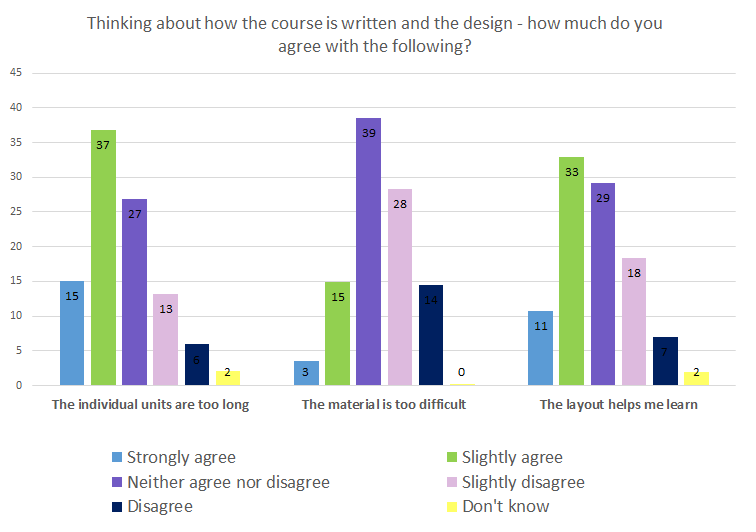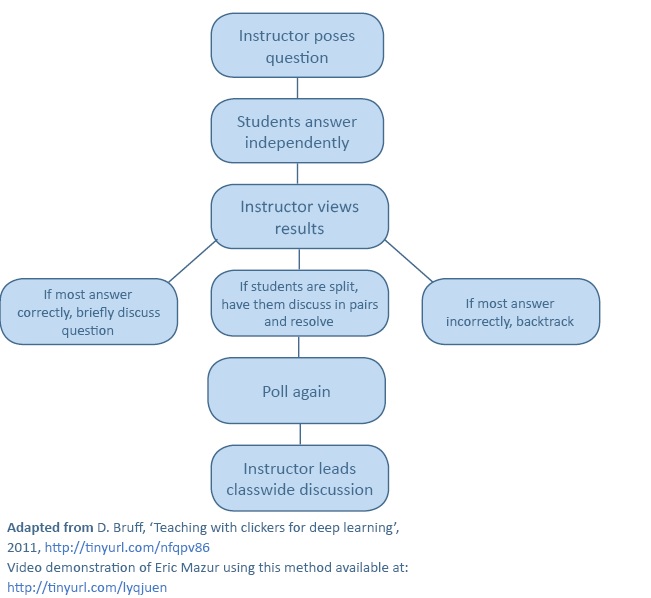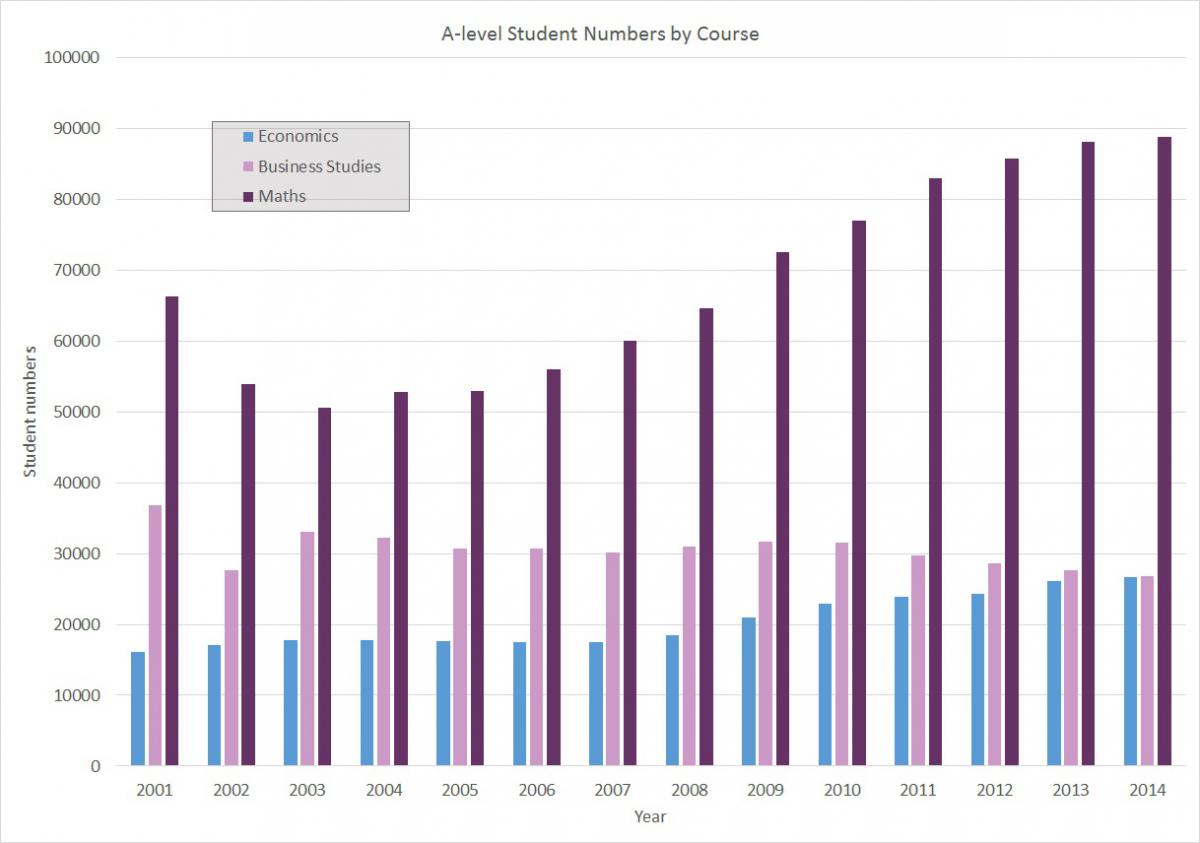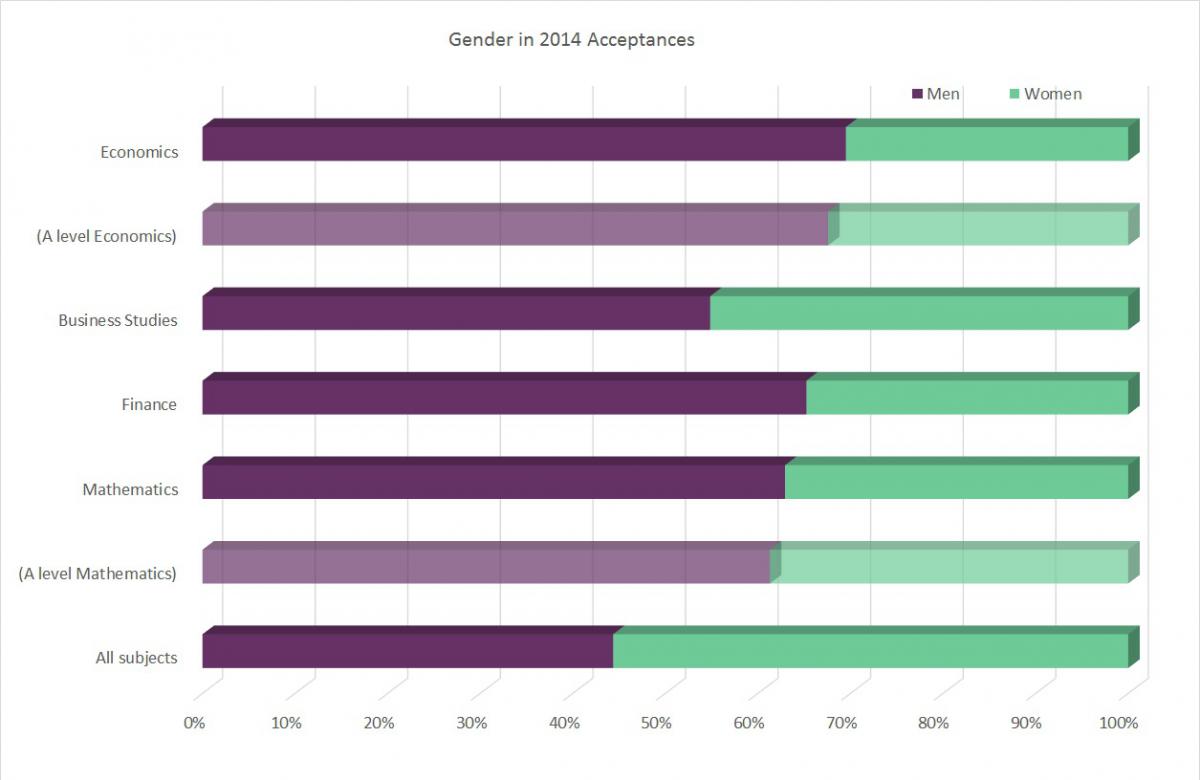Alice Beckett and Ashley Lait
The Economics Network
Published September 2015
Economics education has seen some changes over the past several years. In particular, many have been keen to examine the impact of the recent changes in tuition fees and the impact of the financial crisis on university education and interest in economics. This report aims to examine the current landscape of economics education and highlight any significant developments that have occurred in the past year.
↑ TopPolicy Changes
The Teaching Excellence Framework (TEF)
In July, Universities and Science Minister Jo Johnson unveiled plans for the introduction of a Teaching Excellence Framework (TEF) in an attempt to provide incentives for good teaching at universities. The framework, expected to be introduced for the 2017-2018 academic year, will rate institutions by their teaching quality, with the explicit intention of providing a balance to the incentives of the Research Excellence Framework (REF).
As with the REF, there have also been suggestions that the TEF will be linked to Higher Education funding. Chancellor George Osborne announced in his July budget that the government would “link the student fee cap to inflation for those institutions that can show they offer high-quality teaching”.
No final version of the Teaching Excellence Framework has yet been released, but statements from Jo Johnson have suggested that the framework will involve assessing “the employment and earnings returns to education by matching Department for Business, Innovation and Skills (BIS) and Department for Education (DfE) education data with HMRC employment and income data and Department for Work and Pensions (DWP) benefits data”. Much of the framework is therefore likely to be outcome-focused, with labour market outcomes being used to assess teaching effectiveness.
QAA Subject Benchmarking
Subject Benchmark Statements set out expectations about standards of degrees. They describe what gives a discipline its coherence and identity, and define what can be expected of a graduate in terms of the abilites and skills needed to develop understanding or competence in the subject.
The Subject Benchmark Statement for Economics was updated in 2015 and can be viewed here.
↑ TopEconomics Network Research
Trends in UK Economics Education
In February 2015, the Economics Network published a report examining how student participation in economics has changed and examining trends in economics education over the past several years. The report examined data from the Joint Council for Qualifications, UCAS Course Search and End of Cycle data, the National Student Survey and the Destinations of Leavers from Higher Education survey.
Pre-university data suggests a fairly positive picture for the uptake of Economics as a subject at A-level. The number of students sitting A-level Economics has increased over the past 10 years, particularly from 2008 onwards, which may suggest some response from students to the 2008 financial crisis. Increases have continued from 2012 to 2014, despite a decline in overall A-level student numbers in this period. The gender balance of students in A-level Economics has remained fairly constant since 2001 with female students consistently making up around 33% of A-level Economics students. This figure looks particularly low when compared with the overall A-level figures where around 54% of students are female.
Figure 1 - A-level Student Numbers by Subject - Click to enlarge
As with A-level Economics students, there is still a significant male bias in university-level Economics, with Business Studies and Mathematics also being male dominated, although less so. The proportion of female applicants to university Economics courses has consistently remained at around 31% since 2007 despite around 55% of overall university applicants being female. The A-level data shows that there is a similar proportion of female students between both A-level and university-level Mathematics and A-level and university-level Economics suggesting that the gender bias in these subjects is engrained before the choice of degree course is made. The recent survey of gender balance amongst academic economists conducted by the RES Women’s Committee suggests that this gender imbalance may be carried all the way through to the professional academic level, with their survey finding that women constitute 27% of all academic staff in UK economics.
Figure 2 - Gender in 2014 University Acceptances - Click to enlarge
Provision for university-level Economics is broad, with a fairly constant number of L100 (UCAS course code for Single Honours Economics) Economics courses available across UCAS entry tariffs from 280 to 380 points (equivalent to BBC to A*AA grades for three A-levels). A distinction still appears to remain between universities based on their higher education grouping, with Russell Group universities tending to have the highest minimum entry requirements whilst post-1992 universities have the lowest entry requirements. Of the 62 universities offering L100 Economics courses through UCAS for 2016 entry, 13 listed A-level Mathematics as a pre-requisite with 8 of these requiring Grade A or better. Despite clear growth in student numbers in A-level Economics, none of the 62 universities with L100 Economics courses listed A-level Economics as a pre-requisite for their course.
Application figures for university-level Economics have been much more variable over the last 7 years than equivalent A-level figures. There has been overall growth in application numbers since 2007, although this has not been constant. In particular there were falls in application numbers in 2010, 2012 and 2014. The fall in 2012 application numbers was generally reflected across university subjects and may demonstrate some impact of the higher tuition fee cap (in most cases £9000) introduced in that year.
Economics, Business Studies and Finance course have a higher proportion of international (non-UK) students than university courses as a whole with this being particularly pronounced for Finance courses. The vast majority of Economics students, around 70%, are from the UK.
For questions relating to feedback in the National Student Survey, Economics and Business Studies courses performed slightly worse than Mathematics and Finance courses. When compared with Politics and Sociology courses, Economics performs equally well for the question relating to the promptness of feedback (Q07) but continues to perform slightly worse on the question relating to how well feedback clarifies misunderstandings (Q09).
The full report on Trends in UK Economics Education is available here.
Employers’ Views
The Economic Network recently conducted a survey of employers of economics graduates for the 2014-15 academic year. The survey aims to improve understanding of the knowledge and skills required by graduates to be effective employees, and to identify and address any clear shortfalls.
Overall, the survey highlighted the application of theory and communication skills, in particular communicating effectively in writing, as the areas most in need of improvement among economics graduates. These results reflected similar criticisms raised elsewhere, for example at the Economics Network’s Bank of England event, which also highlighted the conspicuous absence in current curricula of recent policy priorities such as micro- and macro-prudential policy.
Skills valued by employers
Employers were asked to indicate how important they considered a range of skills to be among the economics graduates they employ. Most frequently considered as “very important” were “the ability to analyse economic, business and social issues”, and “the ability to organise, interpret and present quantitative data”. They rated “understanding and interpreting financial matters” and “framing” – defined as the ability to formulate economic problems, determine the important parameters and construct constrained solutions – to be least important.
Figure 3 – Skills Employers See as Important To Economics Graduates - Click to enlarge
How Employers Rate the Skills of Current Economics Graduates
In assessing the current skills possessed by economics graduates, employers considered graduates to be most proficient in their “fluency in using IT and computers” and least proficient in “critical self-awareness”. Other skills for which employers frequently cited the level of skill as “not very high” included “the ability to apply what has been learned in a wider context” and “the ability to communicate clearly in writing”, although responses were much more varied in these areas.
Areas of Knowledge and Understanding Valued by Employers
Employers were asked to consider which areas of knowledge and understanding they saw as important in economics graduate appointees to their organisation. The results showed that employers most highly valued knowledge and understanding of “incentives and their effects” and considered knowledge and understanding of “equilibrium and disequilibrium” to be least important. Knowledge and understanding of “social costs and benefits” and “opportunity cost” were also deemed important by the employers surveyed. Considered less important was knowledge and understanding of “the impact of expectations and surprises” and “macroeconomic variables and the impact of macroeconomic changes”.
Skills and Knowledge Most Needing Further Development
Finally, employers were asked to comment on which skills and knowledge they believed most needed to be developed further in economics degree courses. When their comment were grouped into categories, employers most frequently mentioned the application of economic theory as an area that needs developing. Other skills frequently mentioned included communication skills, quantitative skills, economic history and cost-benefit analysis.
Figure 4 - Wordle of Employers Comments Regarding Skills and Knowledge in Need of Further Development - Click to enlarge
You can read more about the results of our survey and comparisons with previous surveys here.
↑ TopCurriculum debates
Changes to university economics curricula has been a topic of some hot debate following the 2008 financial crisis and the resulting discussion on whether the economics profession had been properly equipped both to predict and to deal with the crisis. Since then a number of events and organisations have attempted to address some of the concerns raised by practitioners and students alike. This section reports on some of the developments in this area over the past year.
Revisiting the State of Economics Education
On Tuesday 17th March, the Economics Network hosted a symposium at the Bank of England to ‘revisit the state of economics education’, attended by over 140 academics, students, journalists, practitioners and policy makers.
The event was introduced by Diane Coyle who reflected in her introduction on how the terms of the debate on the economics curriculum have changed since she hosted her original conference on examining economics education after the crisis in 2012. She commented that, in 2012, the question under discussion was the direction of change for economics teaching in the wake of the financial crisis with the time being ripe to focus on whether and why to change the curriculum. By the March 2015 event the issue had turned almost squarely to the practicalities, barriers and successes of implementing curriculum reform. Despite this, the Symposium showed that there was still room for entrenched criticism, even polemic, but that various concrete developments had shifted the debate forwards.
The use and analysis of data in teaching was a major focus of the day. The opening session from Andy Haldane and Sujit Kapadia on the Bank of England’s One Bank Research Agenda raised the question as to whether students should be taught to understand new types of data such as appropriate Google searches. Richard Davies (The Economist) discussed whether gold-standard econometrics programmes such as Stata should be displaced by computer languages such as Python which are increasingly used to analyse the big data emanating from businesses such as AirBnB, Uber and Facebook. Jonathan Haskell (Imperial College) retorted that economics is inference based and relies on samples rather than population analyses which he argued were more relevant for business prediction rather than economic understanding.

Figure 5 - Richard Davies, Andy Ross, Jonathan Haskel and Steve Pischke participate in a panel on 'Engaging students with real world data'.
Discussions of curriculum reform often create wish lists of topics that should be included in the syllabus. The focus on practicality and implementation at the Symposium inevitably meant that the appropriate consideration was of what must be left out of the syllabus to make way for the new.
One of the clearest examples of concrete practical curriculum reform is the new CORE curriculum developed by Wendy Carlin (UCL) (an update on the CORE project is available in the following section). One panel was devoted to CORE although it also surfaced repeatedly as a focal point throughout the day. Ralf Becker (Manchester) reported on the institutional challenges of introducing a new syllabus such as CORE into a large department and Ha-Joon Chang, reported on a new INET-funded initiative (the Skidelsky Curriculum) to develop another syllabus based on a more obviously “heterodox” economics than is apparent in CORE, whose focus is on bringing the insights of recent economics research to the forefront of undergraduate teaching.
Other speakers considered ways of broadening the curriculum and the benefits of perspectives beyond those traditionally taught in economics departments. In the summing up, Charlie Bean, Alan Kirman, Dave Ramsden and Victoria Chick considered the next steps to be taken in the reform of economics teaching. That the discussion had shifted since the original symposium in 2012 was clearly evident but one left feeling that the debate was far from settled and that another such gathering may well be expected at the Bank in another few years.
CORE update
The CORE Project launched its open-access, interactive eBook-based course, called The Economy in September 2014. The course, designed to be taught as an introductory economics course, was initially adopted at UMass Boston and SIPA Colombia University in the USA and University College London (UCL) and the University of Bristol in the UK at the start of the 2014/15 academic year. Since its initial introduction the course has been translated into French and Italian and been piloted at a further 7 universities across 5 continents.
Over the past year the CORE Project team has conducted workshops in France, Chile and Italy and conducted a wide-ranging review of The Economy to gather feedback from teachers, students, subject experts and policy makers from around the world on its current content.

Figure 6 - Graphs taken from the Review of the CORE curriculum
In response to this feedback, a new beta version of the CORE introductory course has been developed to be piloted in the 2015/16 academic year. Plans for the following year also include the release of Teaching Materials to be available to those offering the course, further workshops to continue to refine the course and the translation of the CORE material into Spanish and Hindi.
Skidelsky Curriculum
In 2011, a committee of academics led but Robert Skidelsky proposed a further alternative curriculum project, called the Skidelsky Curriculum, in response to the CORE project. The project remains in the early stages but, as Ha-Joon Chang reported at the Revisiting the State of Economics Education event the Skidelsky curriculum has obtained funding from INET to develop a more obviously “heterodox” economics syllabus than is apparent in CORE, and whose focus is on bringing the insights of recent economics research to the forefront of undergraduate teaching.
A rough outline of a curriculum proposal was made in April 2011, although no further details of any recent developments to this have been released. The curriculum is at present a very rough outline of what an undergraduate economics curriculum might look like in its entirety. The proposal includes modules to be taught throughout the three years although includes little or no detail beyond module titles.
Post-Crash Econ Society
In April 2014, the Manchester-based Post Crash Economics Society (PCES), in conjunction with Rethinking Economics, hosted their “(un)conference” titled Boom Bust Boom Bust: Why Economics Is For Everyone. The conference, held in Manchester, aimed to make economics accessible to all and to forge “alternative narratives about the financial crisis and its aftermath”. The event included keynote speeches from Channel 4’s Paul Mason, the FT’s Martin Wolf and a film premiere of Terry Jones’ documentary on financial crises “Boom, Bust, Boom”. Sessions were organised into five themes; the Future of the North, Economics and Politics, Crash-Course in Citizen Economics, Faith, Spirituality and Economics, and Conversations Across Borders. The event aimed to challenge the traditional approach to an academic conference by promoting interactivity between attendees and speakers. Although the overall conference was not focused on teaching, there was a session on “Practical Curriculum Change” with Steve Keen of Kingston University, Will Davies of Goldsmith’s University and Sara Gorgoni of Greenwich University.
Will Davies outlined Goldsmith's experiences with the introduction of their new PPE (Politics, Philosophy and Economics) degree in which the principles of economics module begins with an historical perspective into which "orthodox" economics is set at a later stage, and in which following modules do not neatly fit into the component categories of economics, philosophy or politics. Sara Gorgoni discussed a revised economics programme at Greenwich which likewise emphasises plurality and history. Steve Keen led a discussion within the session on how to keep the student voice influential and active within the academy.
↑ TopIn the classroom
Learning Catalytics
While it is certainly true that many lecturers still deliver their classes in the traditional ‘lecturing’ style of reading notes or going through PowerPoint slides, there have been various innovations that are recasting the lecture. Some of these, such as the use of flipping and lecture capture technology, are already well-known and widespread in their use in higher education. Others are less well-known and their potential remains unfulfilled. Here we investigate the use of clickers and, more specifically, “Learning Catalytics”.
The use of clickers or other classroom response systems (including polling software or apps on personal devices), which allow students to individually and/or anonymously respond to questions, brings an interactive element to lectures that teachers have struggled to achieve in large class settings since the widespread use of pre-prepared PowerPoint slides and have been in use for several years. The value of clickers in increasing interactivity has been attested to in a number of studies (Stowell & Nelson, 2007; Freeman et al., 2006) and recent developments show there are even more ways of improving learning through the use of polling technology.
Classroom response systems stream students’ responses live to the lecturer’s computer and they can then be displayed in graphic format on a projector screen. The lecturer is able to see whether students have understood the material, identify any areas of difficulty and provide relevant and timely feedback; which in the past has only really been possible in smaller group teaching environments. This also enables lecturers to tailor seminars more closely to the group’s needs.
Perhaps less evident is the role recent polling technology can play in facilitating group work and “peer learning”. Mathematician Derek Bruff of Agile Learning and physicist Eric Mazur from Harvard University have been using the “Learning Catalytics” technology to encourage students to learn from each other. Unlike some other polling technologies, this one allows graphical and free-form input which may be of particular use to technical subjects such as economics. It also allows the instructor to see in real time the understanding shown by every individual in the lecture. Mazur uses these individual responses to create pairs of students who have different (perhaps opposing) answers to a question so that they can try to convince each other at an individual level during the lecture. Only after this peer learning takes place does he reveal the correct answer to the problem.

Polling technology used in this way is not merely engaging the students in an interactive way, but it is inviting them to justify, reason and communicate their answers with peers, developing some of the vital skills that we look for in our learning outcomes and which are valued highly by employers.
Finally, clickers may have an additional use for economists: lecturers are able to save the raw data they collect through polling their students, providing valuable data that might be analysed to better understand and reflect on their courses.
There are increasing numbers of providers of this hardware and/or software including:
- Turning Technologies
- Konnect
- Learning Catalytics
- Poll Everywhere
- Socrative
Outside the Classroom
Economic Teaching Literature
Material published in journals of economic education over the past year has centred on topics such as the use of experiments and simulations in teaching, curriculum design and using data and models. The International Review of Economics Education (IREE) also published a special section on financial literacy, addressing the issue of how, why, whether and how well students around the world are taught about financial literacy. Journal articles on economic education published this year, however, have most frequently centred on issues relating to the determinants of student outcomes: how to ensure effective learning and what the determinants are of academic success for students of economics.
This focus on outcomes was reflected in the papers presented at economics education conferences with many presentations also addressing the issue. Conference papers, however, also frequently examined teaching innovations such as flipping, as well as other issues such as the use of data and models and the prevalent issue of the economics curriculum and its potential reform.
Information has been taken from the International Review of Economics Education (IREE), the Journal of Economics Education (JEE), the American Economic Association Conference on Teaching and Research in Economic Education (AEA CTREE) and the upcoming Economics Network Developments in Economic Education (DEE) conference.
This section will be explored in more detail at a later date.
HEA focus groups
This year the Economics Network ran a series of focus groups to examine the teaching and learning issues faced in higher education economics (these were part of a larger project run by the Higher Education Academy including over twenty disciplines).
Participants were invited to comment on the main teaching and learning challenges currently faced in the discipline, how they expect the discipline to evolve over the next few years, and any gaps or problems that the HEA or Economics Network might be able to help address.
General concerns
Many of the concerns raised by the focus group participants were not subject specific but rather were comments on the higher education landscape more generally. These included:
- Student demands for resources (textbooks and lecture notes) that constrict course structure and content and disincentivise further reading
- Increasing pressure to record lectures, which lecturers felt was less useful than shorter videos and may have an impact on class attendance
- Ever larger cohorts of students are negatively impacting teaching provision, assessment (which is becoming dominated by multiple choice or quantitative questions) and individual feedback
- The range of ability and skills of students entering undergraduate degrees was reported as being more varied than the past, leading to difficulty in setting the level of the course and motivating students
- Students lack of preparedness and motivation for university study, including expectations for one answer and a tendency to learn for the exam rather than engaging in the subject (large classes and multiple choice assessment were seen to exacerbate the problem of students’ skill development, particularly around literacy and critical analysis)
- Pressures on staff time with teaching hours, finding or creating resources and research requirements
Economics specific concerns
Further concerns raised during the focus group were particular to economics. These included:
- The absorption of economics departments into business schools or larger departments in many universities, which has led to a loss of identity for economics students and faculty
- Content of economics degrees becoming skewed in favour of technical methods and theory at the expense of skills such as abstracting, critical evaluation and application, which are more valued in the workplace
- The strong pull from the investment banking sector for students considering their career paths, which encourages a large number of students to focus their studies on finance
- Significant numbers of students taking economics as one course in their degree, which reduces motivation and leads to economics being seen as a ‘service subject’ for other disciplines
Solutions
Participants reported tackling many of these challenges in innovative ways to improve teaching and feedback provision to students in a changing landscape. These included:
- Meeting with class tutors to set expectations and offer guidance and support with the course teaching as well as encouraging them to attend Economics Network training workshops
- Using social media to provide group feedback, freeing more time for individual difficulties in office hours
- Organising departmental events and seminar series to foster a sense of community and identity among economists in larger departments or business schools
- Engaging students in group discussions and peer evaluation to encourage engagement with the subject and available resources
Further effort needed
Participants felt that the discipline and/or departments still need to respond to a number of issues, including:
- Students should be given more information on the range of careers available to them so that the draw of investment banking doesn’t dominate
- More sharing of resources within the teaching community to promote good practice and to alleviate some of the time pressures on teaching staff
- Clarification of expectations on students to incentivise engagement with the subject and deeper learning (including emphasising that economics is a subject focused on understanding wider social impacts, abstraction and application rather than a purely technical subject)
- Further support of economics education, through events and research
Expected changes within the discipline
Generally, participants felt that there would not be a profound shift away from current approaches as the strong rate of applications and graduate employment means there is little pressure for significant change. Nevertheless, there were some more minor changes that were identified in the focus groups, namely:
- More history and alternative approaches would be integrated in courses
- Perhaps more variation between the courses and curricula offered
- Macroeconomic debates would remain at the fore and that “macroeconomics teaching will continue to evolve to distil advances in understanding of intended and unintended consequences of policies” and draw from real world experience
- The introduction of monetary policy, macro-prudential policy and comparisons of growth in developed and developing countries into courses were all supported
- A rising interest in behavioural economics and its inclusion in courses





